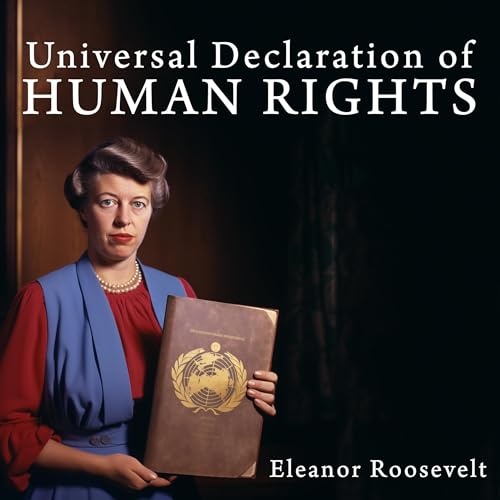
Universal Declaration of Human Rights
Falha ao colocar no Carrinho.
Falha ao adicionar à Lista de Desejos.
Falha ao remover da Lista de Desejos
Falha ao adicionar à Biblioteca
Falha ao seguir podcast
Falha ao parar de seguir podcast
Experimente por R$ 0,00
Compre agora por R$ 5,99
-
Narrado por:
-
Jason MacCoy
Sobre este título
The Universal Declaration of Human Rights (UDHR) is a landmark document in the history of human rights, and Eleanor Roosevelt played a significant role in its development. The UDHR was adopted by the United Nations General Assembly on December 10, 1948, in Paris. It was drafted by representatives from different legal and cultural backgrounds, including Eleanor Roosevelt, who chaired the United Nations Commission on Human Rights.
Eleanor Roosevelt, the widow of President Franklin D. Roosevelt, was a key figure in the drafting process. She played an instrumental role in promoting and advocating for the declaration. Her diplomatic skills and commitment to human rights made her an influential force in the commission.
The Universal Declaration of Human Rights consists of 30 articles that outline fundamental human rights and freedoms to be universally protected. It covers a wide range of rights, including civil, political, economic, social, and cultural rights. The UDHR has served as a foundational document for the development of subsequent international human rights treaties and declarations.
Eleanor Roosevelt's contributions to the drafting and promotion of the UDHR are widely acknowledged. Her efforts in championing human rights continued beyond the adoption of the declaration, and she remains a prominent figure in the history of human rights advocacy.
©1948 Eleanor Roosevelt (P)2024 Eternal Classics


